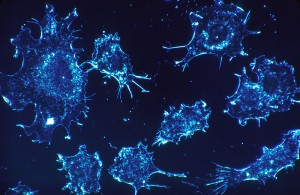TUESDAY, 26 AUGUST 2014
Recent discovery of the function of mutant genes was made by teams of scientists led by Icahn School of Medicine at Mount Sinai and Harvard Medical School.It’s known that bile duct cancer usually possesses mutant IDH genes and some effects of the mutation are related to control of cell differentiation and viability. In this study, the team found that the mutant IDH genes inhibit another important molecule called HNF-4α. This molecule controls normal proliferation and formation of liver cells.
For liver cells, HNF-4α is the so-called “master regulator” for cell identity and quiescence. These activities in liver cells are, therefore, disturbed when HNF-4α is inhibited as a result of the mutant IDH genes. Subsequently, the team showed that liver cells with mutation in IDH genes show abnormal development and repair of the cells upon injury. Moreover, the mutant IDH genes are also found to act together with activated Kras gene to drive progress and metastasis of the cancer, as shown by the teams.
Given the discovery on gene functions and effects of their mutations, this study has opened a new line of research into better understanding of the biology of this deadly cancer. This will hopefully lead to improvement in the treatment and survival for patients.
doi:10.1038/nature13441
Written by Arporn (Koi) Wangwiwatsin.

